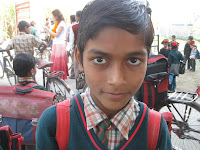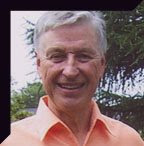
It is time to go home. One of my students, Suraj Lepcha, offers to ride along as Anil drives me to the Dehradun airport over an hour away. I am glad for the offer, since Anil knows about 25 words of English and I know 3 words in Hindi. Lepcha by contrast speaks good English.
Lepcha is one of the students who sat in the front row for 36 hours of lecture with his eyes bugging out and writing down every word, it seemed. He tells me how my style captured him, and the content filled his heart as well as mind. I have seen the philosophy bug bite a student here and there in my adjunct teaching experience.
So I ask him to tell me his story. Bu now we are choking on the smoggiest air since I arrived on October 22. Anil is dodging dogs, cows, bikes, trucks, and pedestrians in downtown Dehradun—as usual.
Lepcha tells me he is from Nepal. Obviously, he is oriental—but then several eastern states in India nestle against Myanmar. So he could be Indian.
How did he get to this college? Well, it is actually not that far in miles, since Nepal borders India and Tibet. He has a sponsor—a woman in Germany. He calls her Mum.
My curiosity goes up a notch. Tell me more.
Actually, I am technically an orphan. My father was an alcoholic and took his own life when I was three years of age. My mother then abandoned me. A teacher in a Catholic school gave me shelter and helped me go to school. But my mind was messed up. I started doing drugs and ruining my life as a young teen.
There are churches near where I live. Christians from Germany came to hold some meetings for youth. That’s how I became a Christian. But it was still very hard. Everyone always wants to know your family—who are your parents? What could I say? If I say I am with the teacher, they would say bad things, for they know he is not married. And obviously, my parents are not from Germany.
So I was lonely—almost an outcast. Then the Lord called me to serve him, and I came to this college. Mum pays my fees, but it is hard with no one near to belong to. I told Mum I want to study and get to the top.
She is so wise. She said that is OK, but pray for the Lord to show you what he wants for you. So I realized I was being driven to get recognized, and with that, acceptance and love. But now God is showing me a way. I want to go back to Nepal to the poor area I come from and start a school, since kids out there have little chance to get and education.
That’s so great, I say. Because that is a way to get a church started here in north India. Will that work in Nepal?
O yes. Buddhists and Hindus—and Muslims, too—want their kids to get ahead so they will not always live hand to mouth.
Lepcha is musical—playing by ear. He plays bass guitar in the NTC praise team. Lots of talent. He knows that music is a way to build a base. Most of the Christians in Nepal are young people—not too many of their parents have come to faith.
Lepcha has a keen mind, too. He says the course opened up something he had been yearning for, even though he didn’t know what his mind was craving. He is persistent, too. He asked good questions of me. And if I did not hit the target he kept on asking. In fact, he tells me he is like that, and some of his friends get tired of his persistence in their dorm sessions. He keeps pressing until his mind is satisfied.
By now we are well out in the country and the air is easier to breathe. I see a small control tower ahead on the left. The hour has flown by—except for Anil, who has to watch everything like a hawk. He has to pass slow traffic on this narrow, busy road—always a white knuckler for me. So I am glad to be distracted by conversation.
I am eager to have Lepcha stay in touch. I can perhaps encourage his potential. I think he will make an impact in Nepal in areas not yet touched by the Gospel.
I give him my card with the email contact. “I will have an email waiting for you when get to the USA tomorrow!”
We park at the terminal—if you can call it that. Just a low building with a scanner for bags and one check-in desk. Kingfisher Air has only two flights a day.
Just before I go past the officer guarding the entrance, I have Anil take a photo of Lepcha and me, my only Nepalese student so far.
Well, it’s time to go. I will trust myself to the worldwide airlines system, expecting it to deliver me to Logan in Boston in about 24 transit hours.
This is what is significant: A week before I left for India in October, I struggled with the feeling that I really did not want to go. But I was committed, so there was no question of not making the journey.
Looking back, I realize that something did not want me to come here—derailing this mission that seems, to my surprise, to have touched more students in a significant way than was true of my previous six stints at New Theological College.
But God helped me not to listen to that temptation.
So now I keep giving God a “smile offering.” I cannot get over the things he is doing here that he has shown me.
With a joyous heart, I’m going home.










